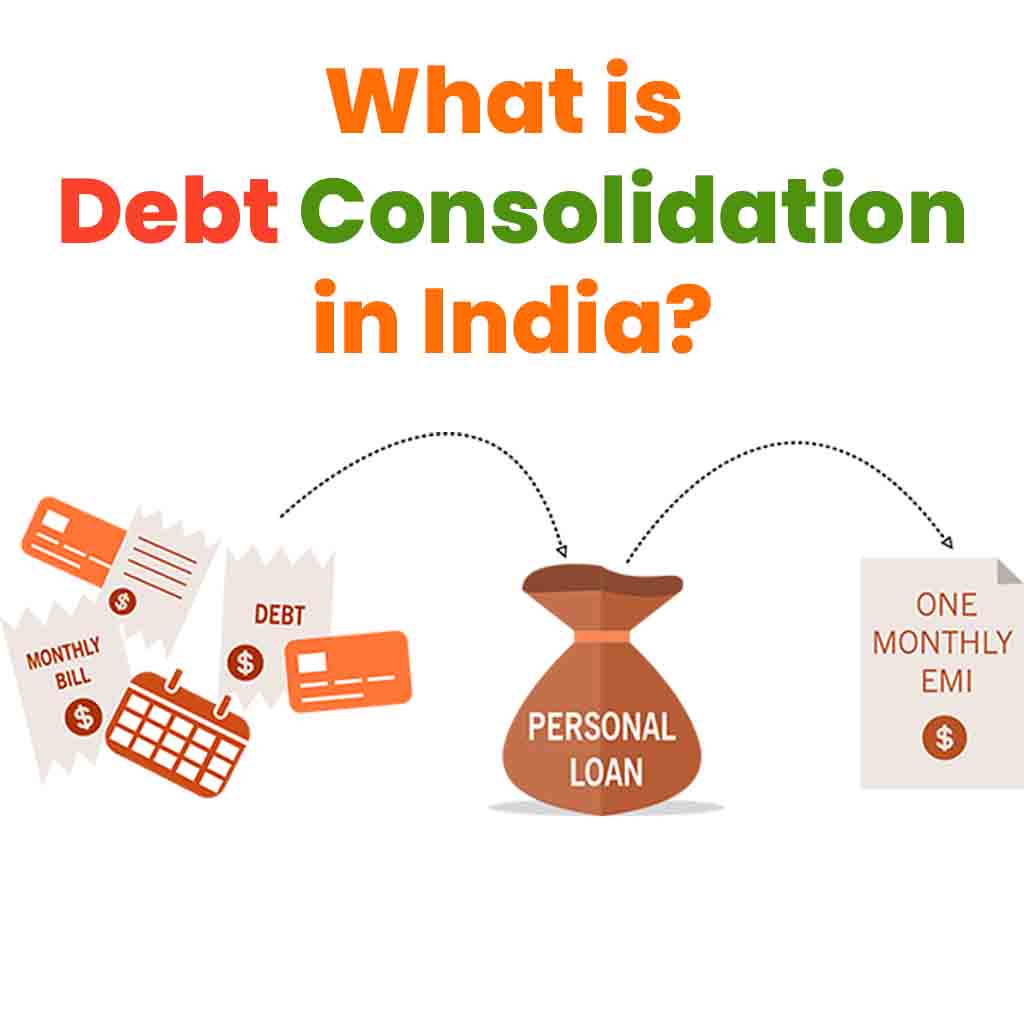
What is Debt Consolidation in India? – In today’s fast-paced world, managing finances can become overwhelming, especially when multiple debts start piling up. Debt consolidation has emerged as a practical solution for individuals in India grappling with mounting debts from various sources. This financial strategy offers a path towards simplifying debt management and achieving better control over one’s financial health. In this article, we delve into the concept of debt consolidation in the Indian context, exploring its benefits, process, and potential considerations.
Debt consolidation, in essence, is the process of merging multiple debts into a single, more manageable loan. This approach is designed to streamline repayments by replacing numerous high-interest debts with a single loan that usually carries a lower interest rate. In India, individuals often accumulate debts from sources such as credit cards, personal loans, and other forms of credit. It provides a way to combine these debts into one, making it easier to keep track of payments and potentially reduce the overall interest burden.
While debt consolidation can offer numerous advantages, it’s important to approach it with caution:
Debt consolidation is a practical strategy that can offer significant relief to individuals burdened by multiple debts in India. By simplifying repayments, potentially reducing interest rates, and easing the financial strain, debt consolidation paves the way for a more secure and organized financial future. As with any financial decision, careful research, evaluation of options, and a commitment to responsible financial management are key to successfully navigating the path towards debt freedom.
This post was last modified on %s = human-readable time difference 2:27 am
आज के डिजिटल युग में, छोटी-मोटी हिसाब-किताब का काम हमारे हर रोज के काम का हिस्सा बन चुका है। चाहे…
सुकन्या योजना में 14 वर्ष तक ₹250 जमा करेंगे तो 18 वर्ष में कितना मिलेगा? सुकन्या समृद्धि योजना (SSY) भारतीय…
How to whitelist morpho device How to whitelist morpho device : Morpho Device का उपयोग करने के लिए Device को Whitelist…
How to cancel Jio recharge and get refund? Jio is one of the largest mobile network operators in India, providing…
Amazon Franchise Kaise Le? Duniya bhar mein online shopping ka trend tezi se badh raha hai, aur Amazon jaise e-commerce…
In today's fast-paced world, where convenience and accessibility are paramount, it's no surprise that financial services have also evolved to…